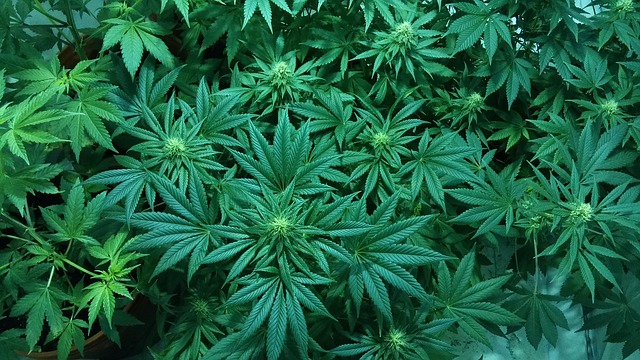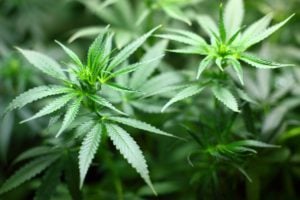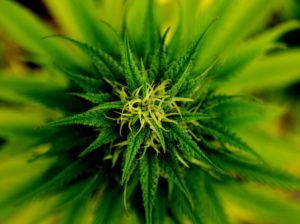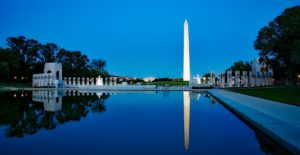
It’s no secret that the US 1920’s ALCOHOL PROHIBITION did NOT work at all!
For those thirteen years, vast amounts of wealth were created illegally on the black market. The basic law of economics teaches us that where EVER there is a demand, a supply will be created.
Perhaps an even more destructive prohibition in the U.S. has that of hemp and cannabis medicine. For eighty years, cannabis prohibition has plagued the American people – a prohibition set into action based almost entirely off of lies, racism and crooked cronyism interests.
Cannabis Prohibition First Takes Hold

The Marihuana Tax Act of 1937 was one of the most manipulatively convoluted and misunderstood laws to ever hit the books. Just about everyone who has read or seen pieces of media such as Reefer Madness can now understand how absurd these claims were. The sad part is, back then – people actually believed that ‘one toke can turn youths into marijuana addicts’ and that ‘the devil’s weed, with its roots in hell, led wealthy white women to leave their husbands for black jazz musicians.’
The ringleader spinning this web of lies was a vile man by the name of Harry Anslinger. Anslinger served as the first commissioner of the U.S. Treasury Department‘s Federal Bureau of Narcotics (FBN). The FBN eventually evolved into what we now know as the DEA. He was a perhaps the most vocal and outspoken supporter of the criminalization of drugs. Without him, cannabis prohibition might never have come to pass.
Somehow, Anslinger held office for 32 years in his role as commissioner until 1962. After that, he was the U.S. Representative to the United Nations Narcotics Commission for two years. In addition to inciting racism, Anslinger told an abundance of lies to representatives of a political system that believed it. In so doing, the waters of people’s understandings of the differences between non-psychoactive hemp and cannabis medicine were so muddied; most Americans didn’t know the difference at the time. In fact, the term ‘marihuana’ was virtually invented by these government goons at this time period. Later the made-up word evolved into what most people call it today – marijuana.
Before this, the plant was mostly called hemp in the west, with some more educated people referring to it as its scientific name, cannabis. Not only did Anslinger and his cohorts prevent access to cannabis medicine, but also restricted access to hemp – which is one of the most versatile plants on the planet.
Hemp’s Historical Uses

As you might already know, the non-psychoactive hemp plant has an abundance of uses dating back centuries. More than half of states in the U.S. currently allow the growing of hemp with a license. The Federal government passed a farm bill was 2014. This legislation allows farmers in legal states to grow industrial hemp, provided it clocks in at under 0.3% THC.
Popular Mechanics magazine called hemp a “billion dollar cash crop” back in 1938.
Ironically, this was right around the time that cannabis/ prohibition was taking hold of the country. Even though cannabis prohibition has stifled much of the potential advancements involving the versatile plant, American-grown hemp has been proving itself as a cash crop once again. Sales of hemp products reached over $500 million nationwide in 2015, reports the Boulder, Colorado-based Hemp Business Journal.
How Prohibition Influences The Legal System

As previously stated, the parasite of marijuana prohibition has been embedded into all Americans for 80 years now. As destructive as it was back then, it’s arguably even worse now. According to the ACLU, marijuana arrests make up more than half of all drug arrests in the United States. Police made 8.2 million marijuana arrests between 2001 and 2010. Of those arrests, 88% were for simple possession – not for selling it, or for property damage, or hurting anyone else.
The War on Drugs was initially put into place by President Nixon, and Regan amped it up with the “Just Say No” campaigns of the 1980’s. Along with a plethora of propaganda and fear mongering delivered to young children through the D.A.R.E. campaign, the drug war has needlessly claimed thousands of lives of otherwise law-abiding citizens that most Americans agree should be offered treatment instead of punishment for drug use if they weren’t hurting anyone else. The war on drugs has cost the American taxpayers hundreds of billions of dollars and has effectively taken law enforcement attention away from real crimes with real victims.
Thankfully, there are many sensible officers, current and former, who are against the war on drugs because they see how it takes away their resources that would otherwise be focused on real crimes. One of such groups is Law Enforcement Action Partnership (LEAP), formerly known as Law Enforcement Against Prohibition. To say we need more sensible, compassionate, and educated officers like these who understand the vast harms brought on by drug prohibition and advocate an end to its stranglehold on the American people.
Despite the fact that sixty percent of Americans now favor the end of cannabis prohibition, President Trump’s new drug czar Jeff Sessions has vowed to crack down on drug users, stating, “Good people don’t smoke marijuana.” Sessions even made the outright statement that there is “no evidence of medical uses for marijuana,” which is a bold-faced lie. Does Sessions actually believe these ridiculous statements, or is he pandering to the forty percent of Americans who somehow favor the continued prohibition on cannabis and the war on drugs? You be the judge.
Who Benefits From the Continued Prohibition of Cannabis?
With all of the overwhelming evidence of the destructive nature of cannabis prohibition and the war on drugs, what is taking so long to end it? Many people have made speculation and will continue to do so. Some people think it’s the pharmaceutical industry whose corporations stand to lose millions from the outright legalization of medical cannabis. Others point to for-profit private prisons making a fortune on jailing weed smokers. With so many people being arrested for marijuana possession and being pushed through the legal system by essentially being forced into plea deals that involve treatment as terms of probation, drug counseling services also stand to lose out when cannabis prohibition finally ends. Then there are also the DEA and police unions who oppose legalization because they understand how much money is being drained from arrestees in the form of fines, court costs, and legal fees.
While cannabis prohibition and the war on drugs is still very much entrenched in the American culture and the legal system, we have seen some great strides over the past few years – and we’ve come a long way. Hopefully, the senseless prohibition of cannabis won’t last too much longer, as it has a negative impact on the U.S. in so many ways.
- Stoner Tuesday Sale 2025!! Buy One Get One + 30% off bookings & 25% off gift cards! Cyber Monday all week fam. - November 27, 2024
- Colorado Cannabis Tours Receives Marijuana Hospitality License From the City of Denver - April 19, 2023
- Cannabis Concentrates Guide: THC Oils, Hash, Wax, Shatter & Dabs - April 11, 2023
